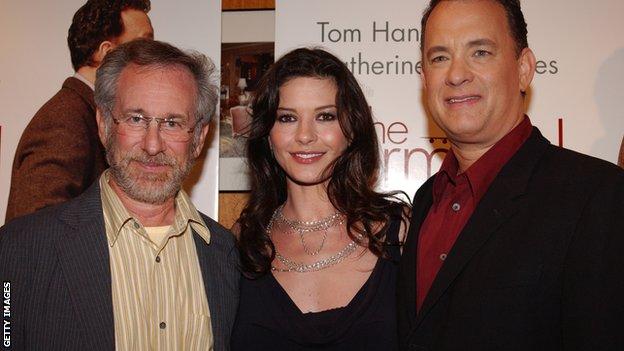ARTICLE AD BOX

Poland's Iga Swiatek, who won the 2020 French Open title as a 19-year-old, is the latest WTA Tour star to feature in a BBC Sport column.
After reaching the Australian Open semi-finals with a gruelling win over Estonia's Kaia Kanepi, Swiatek talks about why she is not afraid to show emotion on the court and how watching Tom Hanks' movie The Terminal made her cry.
In the moments immediately after I won my past two matches, I cried and showed a lot of emotion.
At the end of the fourth-round match against Sorana Cirstea, I was very emotional when I walked to my chair and I started sobbing as I crouched on the court.
And then, when I won my quarter-final against Kaia Kanepi, I threw my racquet in the air and screamed. That was a spontaneous action. Usually I don't do things like that!
The match ended up being the longest of my career at three hours one minute and the match point - where I was stretching for every return from way behind the baseline - was particularly crazy.
Both matches cost me a lot of energy and there was a lot of stress during them. So when I won it was like my body said: 'Finally!'
But I can cry when I win and I can cry when I lose.
Some people have the mentality that it is not good to show emotions but I have the opposite view. Sometimes it helps and sometimes it doesn't, that's true, but you have to understand what is needed in the moment.
Against Kaia, I showed some emotion during the match but I wouldn't say it was more than some others. I felt like it helped me turn the match around and eventually win.
Sometimes it is good to let go. Scream, cry, whatever. You can feel better after that.
I don't think it is bad to show emotion. It is part of being honest with the fans and the people. And if I'm going to give everything in a match, then it would cost me a lot to try and keep those emotions inside.
 Swiatek won in the Australian Open fourth round and quarter-finals after losing the first set, having previously won just eight of 24 in her career when dropping the opener
Swiatek won in the Australian Open fourth round and quarter-finals after losing the first set, having previously won just eight of 24 in her career when dropping the openerI'm not saying you should cry and shout as much as possible. I'm saying it is about finding your way and doing the best thing for you as an individual character.
It's good to be aware of what is good for you and what is going to help you. Everyone is different and everyone should have their own way of approaching this.
When I have so many emotions sometimes I cry. It doesn't matter if it is a positive reason or a negative reason.
Sometimes it doesn't help and that's why I have a sports psychologist - Daria Abramowicz - working with me and travelling on tour.
Daria teaches me how to navigate my emotions and that enables me to channel them in the right way, which ultimately helps execute my shots and improve my performance.
I was very proud of myself coming through the matches against Sorana and Kaia because I don't have good statistics when it comes to coming back from losing the first set and then winning.
It is hard for me to reset after losing a first set but I did that in both matches. My main emotion was being proud of myself, but I was also very relieved.
Away from the tennis court, I can be emotional too.
Last week, I was watching a movie called The Terminal starring Tom Hanks and Catherine Zeta-Jones. I don't know if anyone would cry at that movie. But I cried, twice!
I cried when the old man - the janitor in the airport - went in front of the plane and stopped it from taking off. Then I was like: 'Why the hell am I crying?'
 Directed by Steven Spielberg (left), The Terminal is a film about an Eastern European man who is denied entry to the United States but can't return home because a military coup has broken out
Directed by Steven Spielberg (left), The Terminal is a film about an Eastern European man who is denied entry to the United States but can't return home because a military coup has broken outI also cry when I'm watching a movie where an animal dies. Sometimes I cry when I finish a book, too.
After reading Gone With The Wind, I cried for 30 minutes and it was the day before a match at the US Open.
Daria, my psychologist, was monitoring me to see if I was going to finish the book on a matchday or not. She knew I would be crying and if I was upset just before the match it wouldn't be so good.
So she encouraged me to finish the book on the evening before - and she was right, I did cry. I still wondered if it would affect my performance the next day but thankfully it didn't.
There are some stressful moments in life, or when I interact with people, when I am not really emotional.
But, when I do need to release emotion on court, I want to show that it does not have to be defined as a weakness in the sports world.
Iga Swiatek was talking to BBC Sport's Jonathan Jurejko at Melbourne Park.

- Amazing ways to overcome road rage: Enter the happy place of Zen Motoring
- Awkward questions and emotional confrontations: Meeting your ex for dinner - what could go wrong?


 2 years ago
63
2 years ago
63








 English (US) ·
English (US) ·